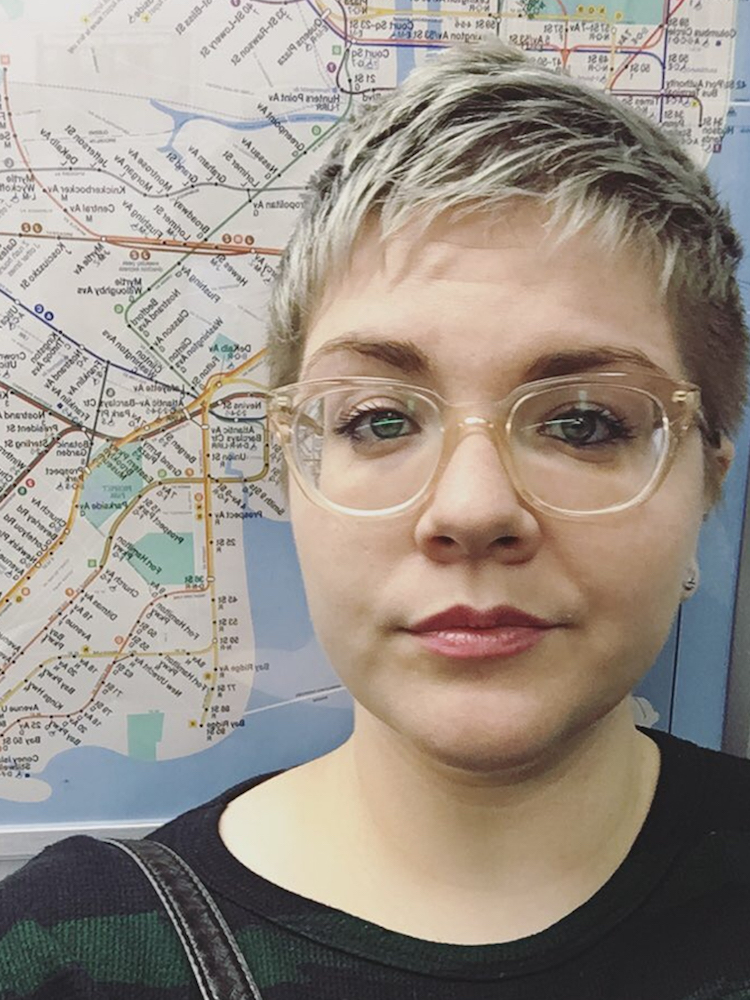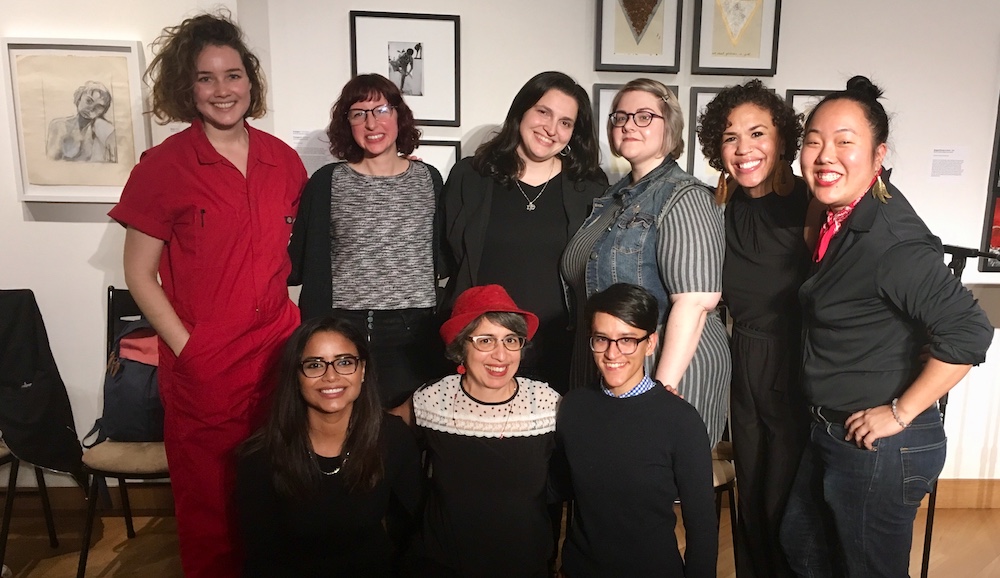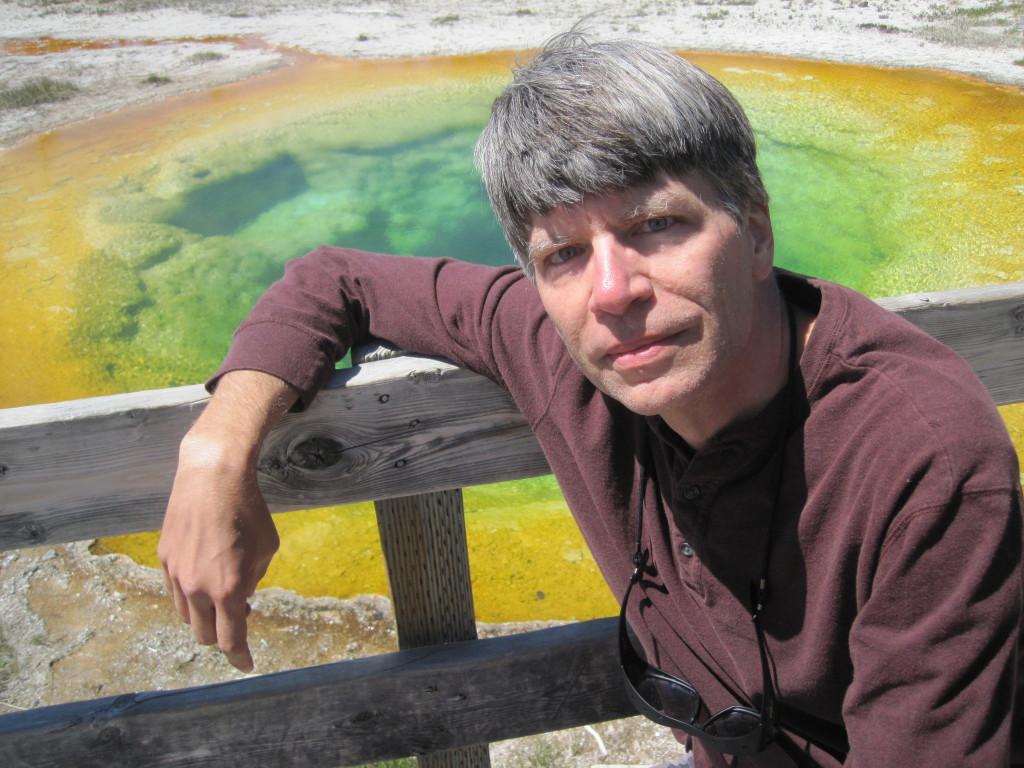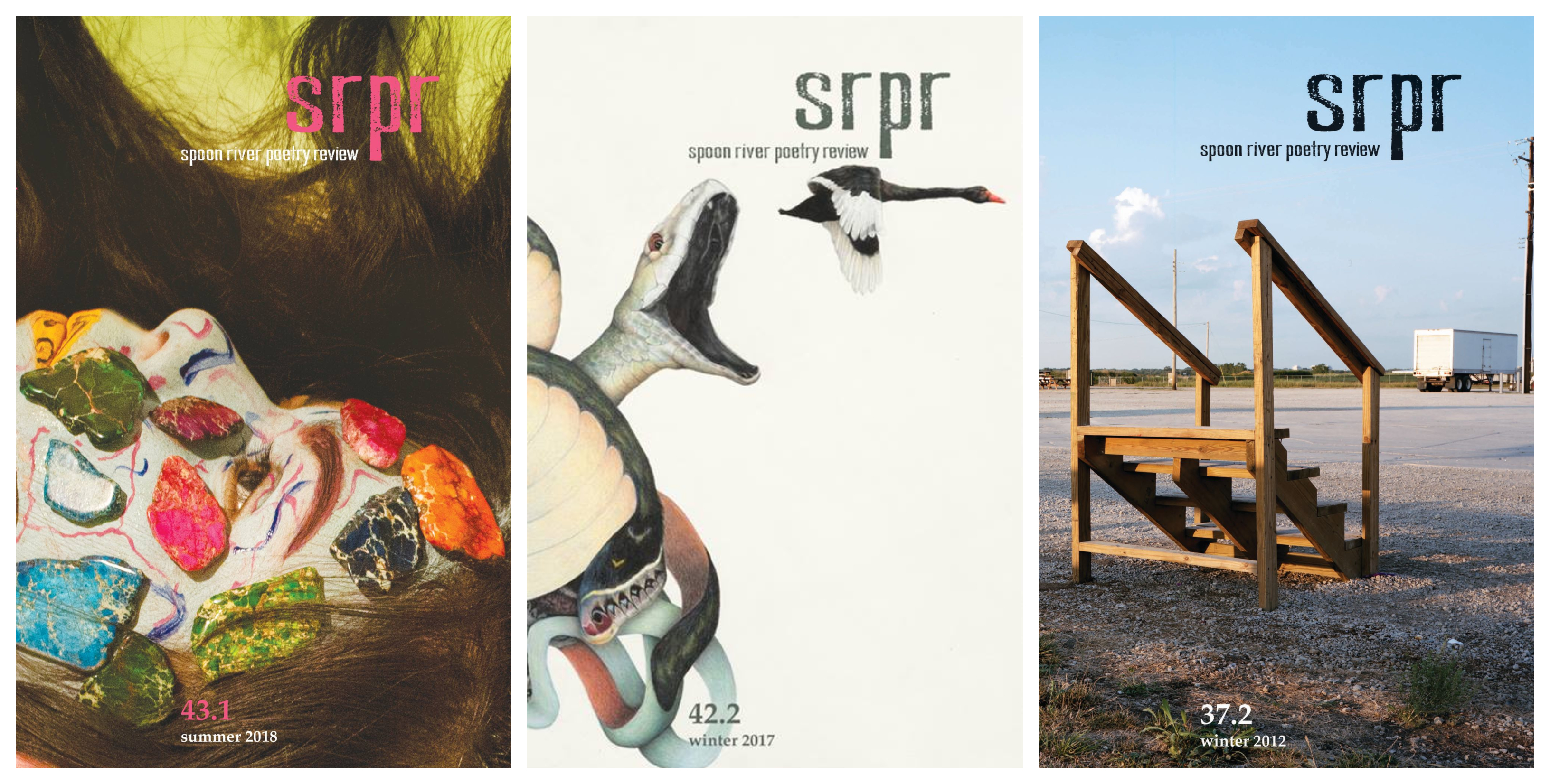Jack York is a queer fatty from Queens, New York. She writes mostly poetry and creative nonfiction, but is rapidly rediscovering her love of fan fiction. She coproduces Streaks of Lavender, a zine on queer resistance through creative writing and community building. York earned her BA in English from Queens College, and works as an administrative coordinator for the New York Public Library. Find her on Instagram @jackyork_ and @streaksoflavender.
 When I entered the Leslie-Lohman Museum of Gay and Lesbian Art in New York City for the first time in October 2017, I was the largest person in the room. This is typical for most spaces I’m in, but what surprised me is that this time I wasn’t sure if I should shrink or rise to fill my space.
When I entered the Leslie-Lohman Museum of Gay and Lesbian Art in New York City for the first time in October 2017, I was the largest person in the room. This is typical for most spaces I’m in, but what surprised me is that this time I wasn’t sure if I should shrink or rise to fill my space.
The group was diverse in race, ethnicity, age, gender, size, and ability. We came from various career paths, most having rushed to the museum from work or school. We brought different levels of publishing, of confidence, of practice. Yes, our queerness united us, but more than that was the desire for community, for a place to feel less othered, for folks to intentionally hold space for our thoughts and words, to be with us as we tried to resist rather than acquiesce.
Creative Writing From Queer Resistance is an eight-week workshop conceived and facilitated by Nancy Agabian. Since 2017, it has brought together three cohorts of queer writers to meet in community, read the work of our queer author ancestors, and continue their legacy of resistance through writing. As each workshop ended, there was a strong desire to continue this work, and across cohorts, participants have become friends and accountability partners for their writing.
What began as a simple, “We should make a zine!” has blossomed into Streaks of Lavender, a forthcoming zine produced by workshop alums. Through this zine, we are creating opportunities to build community beyond the safety of the museum’s gallery walls and to turn our words into action.
At the 2019 New York City Feminist Zinefest, we cofacilitated a creative writing workshop for queer, trans, and gender non-conforming folks focusing on rage, the theme of our zine’s first issue. Inspired by Nancy’s workshop, we read Sandra Cisneros and Audre Lorde alongside some of our own work, and invited participants to share too. We discussed anger, fear, and how we can find safety in our minds and our beds, sometimes. We laughed, we stretched, we literally screamed at the top of our lungs.
And me? Two years after I first entered the museum, I’m invigorated and ready to start letting go of those initial insecurities, those doubts that hold so many of us back, especially marginalized folks. Each doubt focuses on I, but through this new community of writers, in so many unexpected ways, I have become we.
The launch party for Streaks of Lavender’s first issue will take place on Tuesday, April 30 at 6:30PM at the Leslie-Lohman Museum of Gay and Lesbian Art.

Support for the Readings & Workshops Program in New York City is provided, in part, by public funds from the New York State Council on the Arts, and the New York City Department of Cultural Affairs, with additional support from the Frances Abbey Endowment, the Cowles Charitable Trust, and the Friends of Poets & Writers.
Photos: (top) Jack York (Credit: Jack York). (bottom) Creative Writing From Queer Resistance workshop participants (left to right) bottom row: María José, Nancy Agabian, Priya Nair; top row: Mallory Tyler, Courtney Surmanek, Katrina Ruiz, Jack York, RK Pérez, 鄭伊凌 cheng yi ling (Credit: Al Valentín).






 When I entered the
When I entered the 
